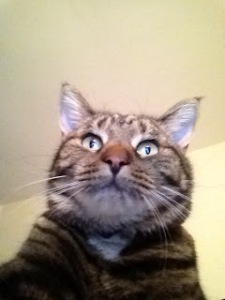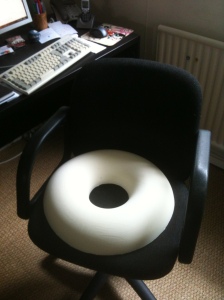Everything changes. Sometimes the rate of change is imperceptible and the only way we realise the change is when we pause and take stock.
Such is the ebook revolution.
In the summer of 2010 Amazon opened its UK Kindle store. That Christmas, the Kindle eReader was the most popular present. This meant that there was a sudden onrush of customers looking for content for their new electronic gizmo.
Free books were the way to get noticed. People were hungry for them and when they snapped up a free book it became visible to other readers because it rose in the rankings. The free rankings fed into the paid rankings and this meant that free promotions worked. Once the free period was over, sales still kept on going.
Four years later, free promotion is no longer anything like as effective as it used to be. Amazon have changed their way of calculating the best seller charts so that free sales no longer spill over into the paid charts. But there is also another factor. People don't want free books.
A free book used to seem a wondrous opportunity. Now the novelty has worn off. And I can understand why.
Twitter and Facebook are filled with GET MY BOOK FOR FREEEEEEE!!!!!!! offers. They have become so frequent and annoying as to be invisible. In my experience free books are rarely worth the price. They are shoddy, ill-written drivel for the most part. There are a million new ones every year and almost all of them are absolute rubbish. The first paragraph or two will usually be enough to make you feel like throwing your Kindle through the window and emailing the author to ask for compensation for your wasted time.
There's another reason that book promotions that once worked are now ineffective. Amazon has changed the way their customers access books and offers both a lending library and unlimited downloads to their Prime customers. Once a free book was a rare jewel indeed, now it comes as part of your free delivery package.
Another thing:
From 1st January 2015, ebooks will be 20% more expensive because of VAT being applied in the country of sale rather than the country of convenience for Amazon. In my view, this may change the dynamic between print and ebooks. An ebook that cost £5 in 2014 will be £6 in 2015, getting closer to the price of a 'proper book' that you can lend to your friends and family when you've finished it. I've a feeling that print books are a benefit to authors because they are more visible and can allow more opportunities to gain a readership.
Yet another thing:
Mainstream publishers now have arrangements with Amazon that increase the visibility of their books at the expense of self-published ones. Amazon have used self-published books to strengthen their negotiating position and are now in a position where they don't need any more. The time is rapidly approaching where there will be a charge to upload and an annual charge to keep an ebook on the virtual shelves.
So the times they are a changin' and selling books is becoming more and more difficult. And even when you do sell some, chances are you'll be getting less money. Some major self-published authors have reported that their incomes have halved during 2014.
If you're a writer, don't get despondent.
You're still much better off in terms of publishing options than in the dark pre-Kindle days.
If you polish that jewel you've created it may sparkle enough to be purchased and enjoyed. Just don't expect it to be automatic.
Happy New Year















.jpg)




.JPG)




